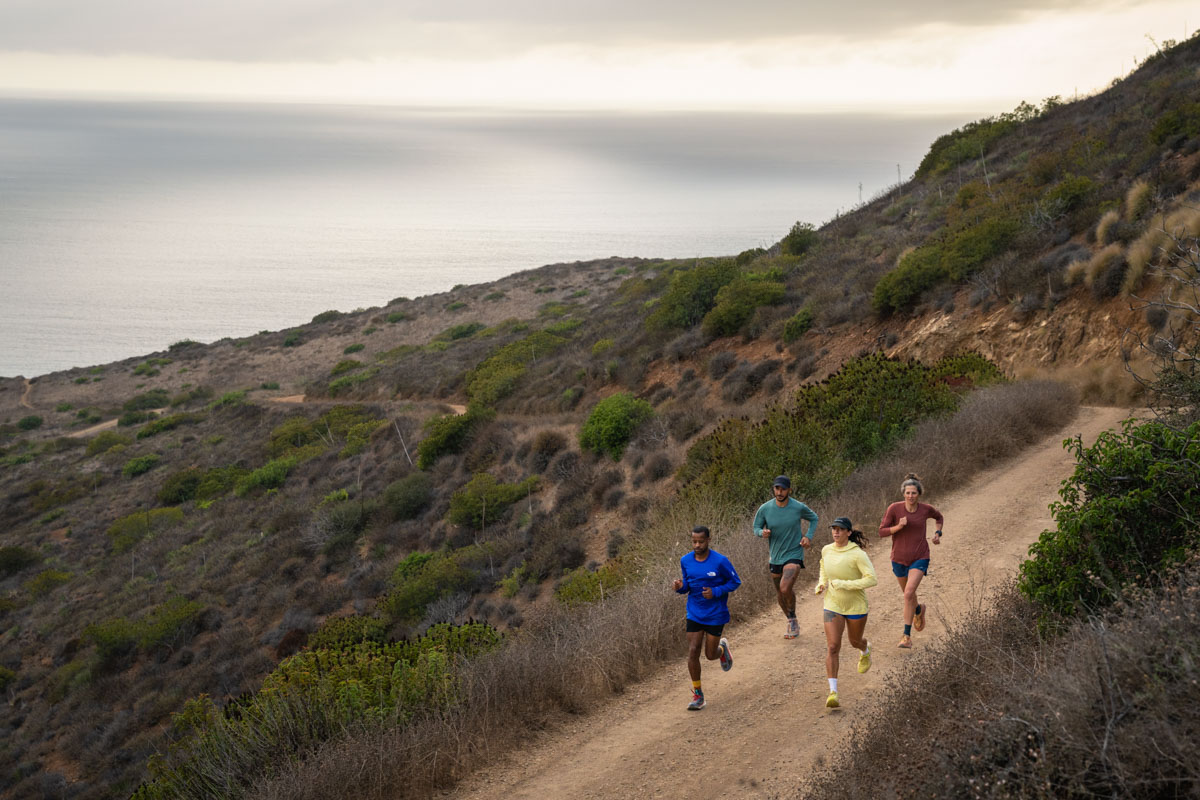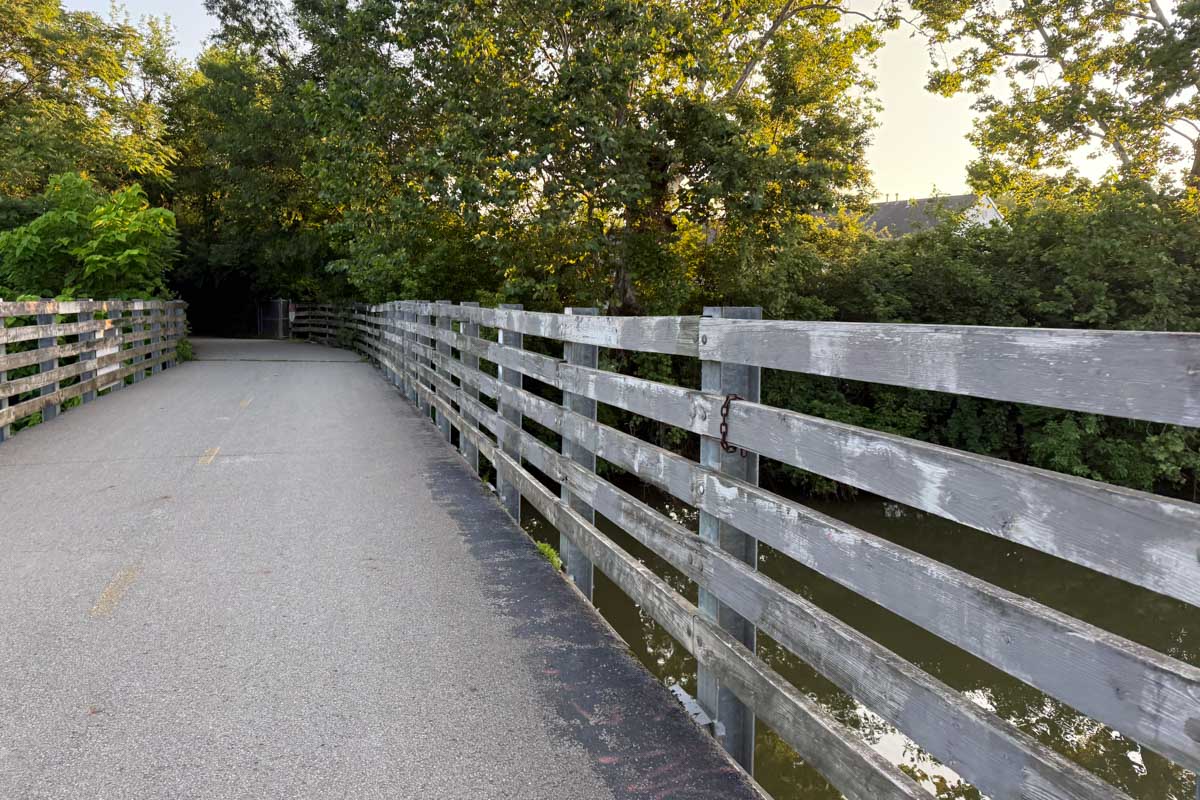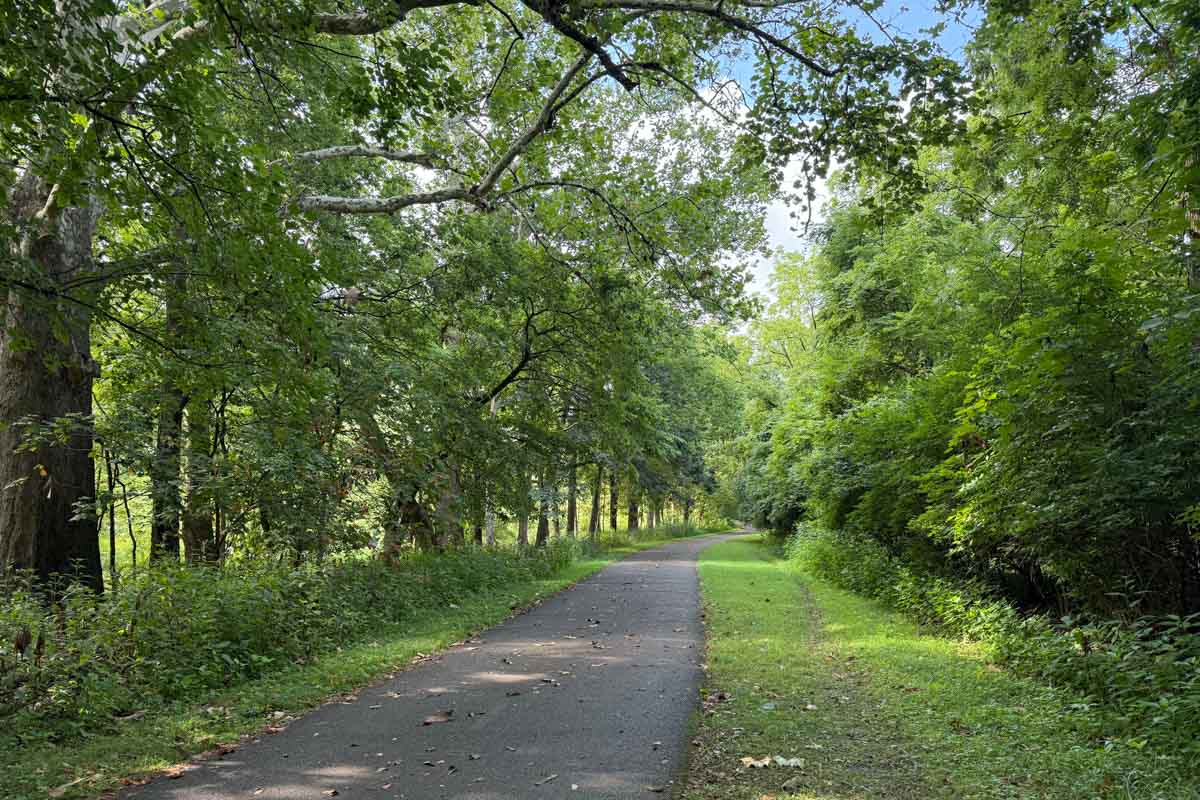I recently moved to Columbus, Ohio, for a new teaching position. To the surprise of no one, my first act in my new residence was to go for a morning run. In Columbus, there is a popular route called the Olentangy Trail, which follows the Olentangy River. The trail is always busy, but on weekend mornings, it is especially so. Certain sections of the trail feel like a freeway — full of people, not cars. We run in singles, doubles, and packs. Some people are silent; some are loud. Some perform workouts, others jog, and some walk. But we are all doing the same thing, shoulder-to-shoulder — engaged in a common task.
On busy mornings, trail etiquette is in place. We pass on the left, providing verbal notice. We stay on marked paths, carry out our trash, and (for those listening to music), we listen via headphones and at modest volumes that keep us alert. We defer to young children on tricycles, and we give nods of affirmation to those engaged in impressive efforts. We are civil.
Seen one way, running has very little to do with civility, or being civilized. It is a bodily activity. We sweat. We eat with our hands, forsaking silverware. Our clothes are moisture-wicking and functional. But seen another way, running has a great deal to do with civility. It supports the flourishing of our community and forms us in ways that can make us better citizens.
At the risk of understatement, we live in a difficult political time. We are polarized, and there is a great deal of strife and distress. People are angry — for many good reasons. So, it is a good thing when there is a formative practice with a constructive impact on us as citizens. Running — and sports more broadly — can benefit civic life in at least three ways.
Running Provides Us With Friends Who Are Different From Us
At some point in graduate school, I realized that most of my friends were professional philosophers or were studying to become professional philosophers. The only exceptions were my running friends. My running friends were various ages, from different backgrounds, engaged in a wide variety of work. We converged on this singular activity — running — which was our common love.
Because of our differences, our conversations were rich and varied. We disagreed about things socially, theologically, and politically, and our conversations were constructive because we were friends, bonded by shared miles. Our common love of running humanized these differences to me. I was motivated to understand opposing views because these were my friends.

Running friends coming from all walks of life can provide diverse viewpoints beyond what we regularly encounter. Photo: iRunFar/Eszter Horanyi
A democracy depends on the ability of its citizens to have conversations with those with whom we disagree. The fact that sports put people in our lives with different life experiences and perspectives matters. Without these opportunities, we are isolated from one another, in our own spheres populated by people just like us. When isolated, we cannot make any progress in reconciling these differences or moving productively forward.
Running Helps Us Know a Place
To arrive at the park closest to my home, I run across a footbridge over a busy road. Sometimes people stand on the bridge holding posters, signaling different political messages to the cars that pass below. Equally interesting is the graffiti on the bridge, which is discursive. Someone wrote a political message. Another person added a line of dissent, and so forth. Running across the bridge has been a helpful source of information about the political inclinations of those in my area. Sitting alone in my house, I would have no idea.

Running in your city can help you learn about the characteristics of its residents. Photo: Sabrina Little
Through running, I have learned about the erosion problem alongside the river, traffic patterns, the air quality, and the places where people often litter. I have learned about the football loyalties of those in my area because of shirts and bumper stickers, and I have learned about weekend carnivals and farmers markets. You can learn a lot about a city while running. This is a civic benefit. You have to know a city to serve it well.
Running Can Form Our Character in Fruitful Ways
Sometimes when I run hard workouts, I want to stop. I tell myself to keep going, or remain on task, a little longer.
Sometimes when I am in a difficult conversation with someone with whom I disagree, I want to stop. I tell myself to keep going, or remain on task, a little longer.
Running gives us practice in perseverance, to persist toward good ends (1). This is invaluable for citizenship. It helps us to persist toward far-off objectives, to complete tasks well, and to stay in place through uncomfortable conversations. Running can also help us grow in patience and resilience. These virtues support the “voluntary and prolonged endurance of arduous and difficult things (2)” and help us to “maintain effective agency” in the face of setbacks, respectively (3). These virtues are important in the life of the citizen — to remain in friendships, to restore, reimagine, or repair institutions, and to navigate competing visions of the good life.

Sabrina Little persevering to the end of the 2017 Lake Sonoma 50 Mile. Photo: Drymax Socks/Bob MacGillivray
Of course, the opposite may be true. If we are imprudent in our training, envious of other runners, or regularly respond to provocation with rage, athletic practice will be a liability for civic development. We should be sure to practice the right things! Thankfully, running is a sport that, overall, has a constructive impact on character. Many of the traits that support success in distance running, such as the virtues named in this article, are compatible with a flourishing city.
Final Thoughts
Seen one way, running has little to do with civility, since we are often messy and dressed in spandex. However, insofar as running provides a variety of friends, helps us learn more about our communities, and forms our characters in generally productive ways, it is an important part of civic life.
Call for Comments
- How has running through your home allowed you to know it better?
- Do you find yourself practicing traits you’ve learned through running in navigating other difficult situations?
Notes/References
- Aquinas. Summa Theologiae II.2.137.1
- Cicero. De Invent. Rhet. ii, as found in Aquinas Summa Theologiae II.2.136.5
- Snow, N.E. 2019. Resilience and Hope as a Democratic Civic Virtue, in Virtues in the Public Square: Citizenship, Civic Friendship, and Duty, ed. James Arthur, pp. 124–139. Routledge Press.

